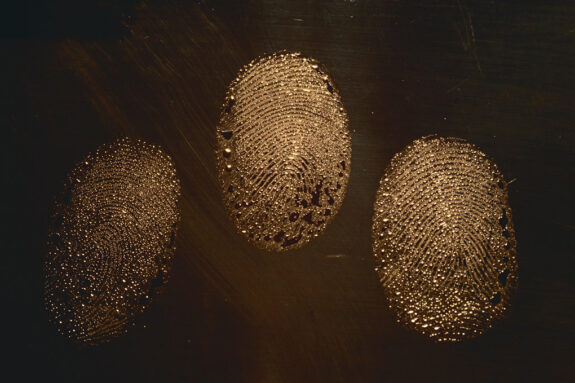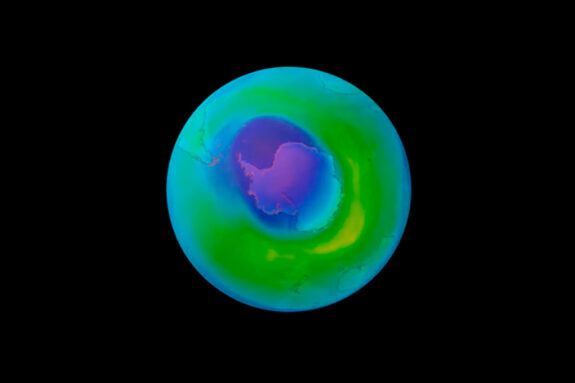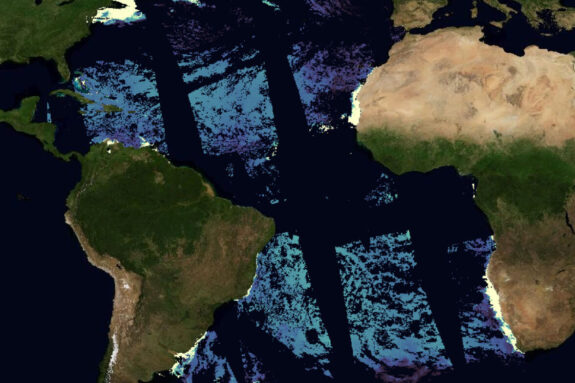Q&A: Documenting life aboard a research vessel

Story Image: Jiyoung Moon's research cruise was at sea over Christmas, resulting in some labs getting festive with their decorations. Image courtesy Jiyoung Moon.
Jiyoung Moon, a postdoctoral associate working in the Woosley lab studying the physical chemistry of the carbon system and how it affects ocean pH levels, spent almost two months aboard the R/V Roger Revelle conducting field work as part of the GEOTRACES GP17-OCE expedition. The cruise was run by GEOTRACES, an international program studying biogeochemical cycles and the distributions of trace elements and their isotopes in marine environments.
The expedition focused on the southern Pacific and Southern oceans, stopping at 38 stations over 55 days. Moon’s work involved collecting sea water samples to measure pH levels and determine the level of acidification that’s occurring. While traveling, she kept a blog on the Woosley lab page, documenting her research and life aboard the vessel, as well as interviewing fellow scientists about their own work. Moon took some time to answer questions about her experience aboard.
Q: What made you want to go on the expedition?
A: The Southern Ocean is a highlighted region in climate change research because it absorbs about 18 percent of the CO2 absorbed by all the world’s oceans. For me, who wanted to study the interaction between oceans and climate change, this expedition was an opportunity that couldn’t be passed up.
Q: What was your favorite part of the trip?
A: Sometimes marine animals like penguins and whales were spotted. People from all around the ship came together to watch the animals. Seeing them in their natural environment reminded me of freedom and wonder and left a lasting impression.
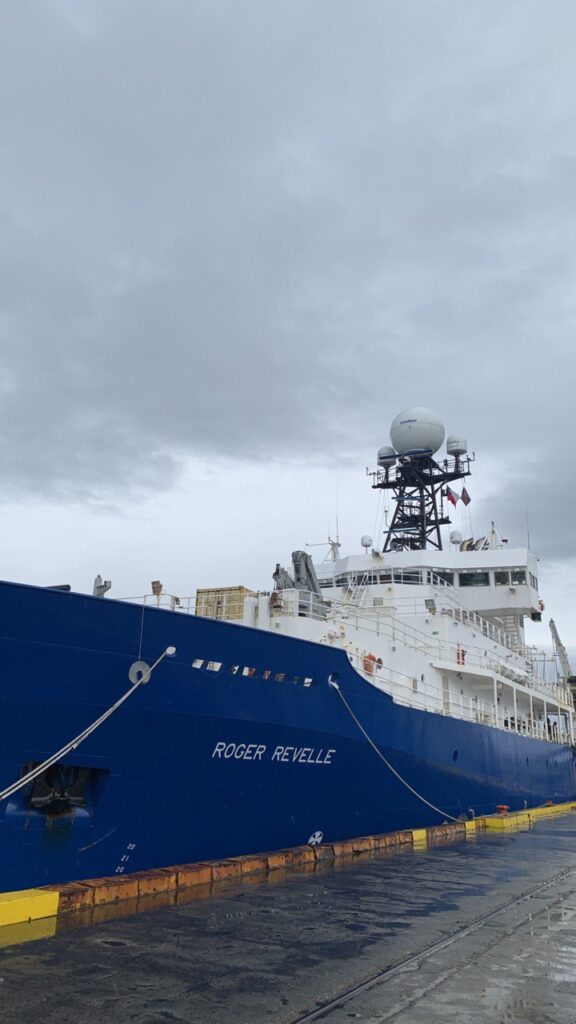
Q: What was your least favorite part?
A: One of the most challenging aspects of this expedition was dealing with rough weather conditions. High waves broke some sampling equipment and let them sink into the ocean. This was disheartening for my colleagues who lost their equipment, as they had invested lots of time and resources into it. We had to console each other to deal with frustration and disappointment. Despite these setbacks, we remained committed to our goals and worked as a team to overcome those challenges.
Q: Why did you decide to write a blog documenting your trip?
A: One of the reasons why was that life onboard the ship was quite different from my daily life at home. I wanted to capture the unique experiences and memories that I made and preserve them for myself and others to look back on in the future. Writing about the cruise allowed me to reflect on the people I met and to appreciate the expedition even more. Additionally, I hope to inspire others by sharing my experiences through the blog.
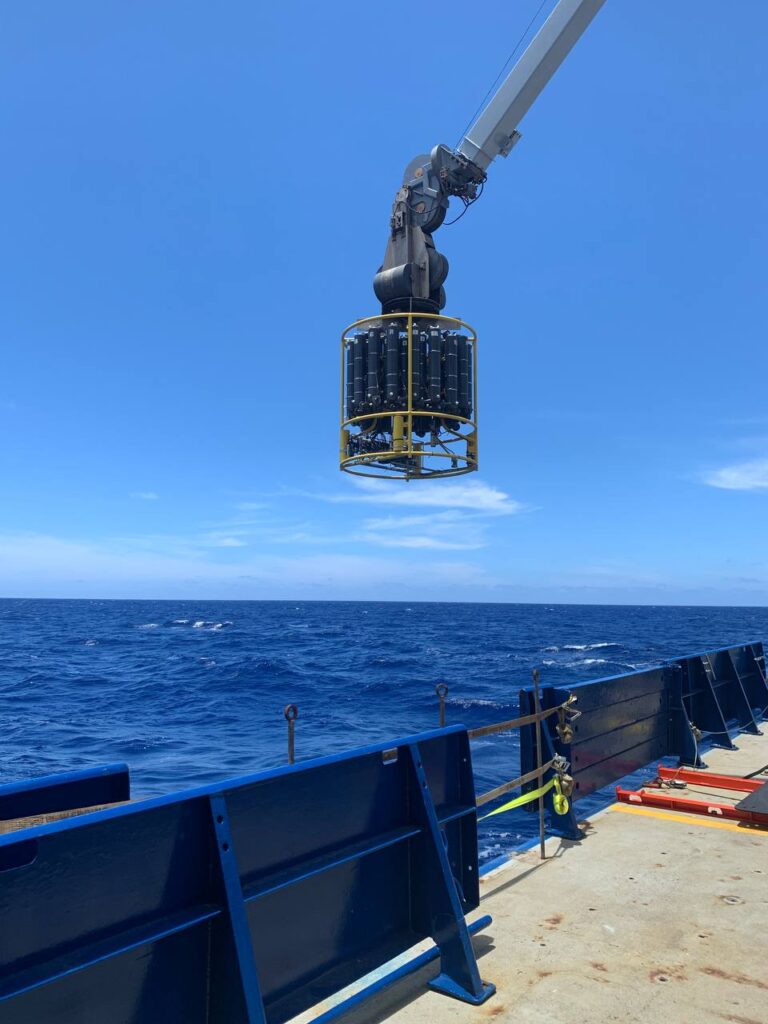
Q: You interviewed a few people for your blog; who was your favorite person to talk to and why?
A: Out of all the people that I interviewed, Susan Becker was my favorite. She was incredibly kind and supportive throughout the entire expedition. She would check in with me every day to see how I was doing when I was struggling with seasickness and shared some helpful treats. She shared the most hours with me at the laboratory as the person in charge of measuring seawater nutrient concentration. At the end of the cruise, just being together in the laboratory has been a great source of strength for me. I admired her dedication and commitment to her work.
Q: Would you go on another long expedition like this one again?
A: There was a lot of fun during the cruise, but being away from my beloved family for a long time was emotionally challenging. It made me realize the importance of staying connected with loved ones. As a result, I would carefully consider being away from my family before committing to another cruise.
Check out the Woosley lab blog for more information on how Moon conducted her research and interviews, as well as an inside look at life aboard a research cruise.
